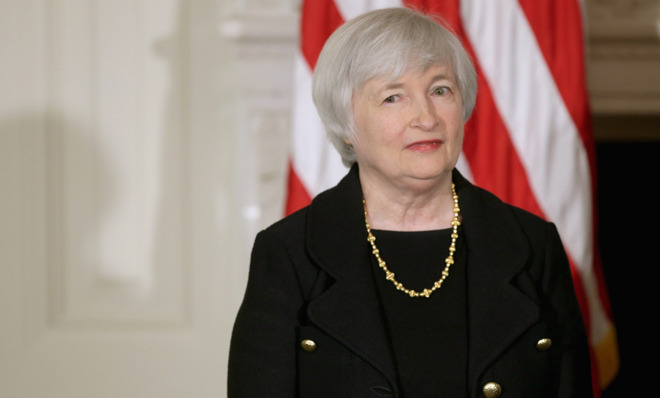When is inflation just right?
Though it has been battled in past decades, many economists believe a little inflation is good for a weak economy

A free daily email with the biggest news stories of the day – and the best features from TheWeek.com
You are now subscribed
Your newsletter sign-up was successful
There is such a thing as too little inflation, said Brian Blackstone in The Wall Street Journal. Just look at Europe, where inflation last week fell to a "dangerously low" annual rate of 0.7 percent. When the rate is that low, "companies, households, and even governments have a harder time cutting their debt loads," and investment and consumer spending can fall off dangerously. And Europe's not the only region with that concern. "U.S. inflation also shows signs of slowing, though not as quickly." Last week, the Labor Department said consumer prices rose just 1.2 percent in September from the year before, well shy of the Federal Reserve's target of 2 percent. The rate would likely be much lower than that if the Federal Reserve weren't spending $85 billion a month to buy bonds and "juice inflation." Such central bank measures aren't an option, however, for the most beleaguered members of the European Union, such as Spain and Italy, because Germany "fiercely opposes currency devaluations and central bank money-printing."
Washington, too, is seeking a path to deal with inflation that's "not rising fast enough," said Binyamin Appelbaum in The New York Times. Though it is "widely reviled" and has been battled in past decades, some economists believe "a little inflation is particularly valuable when the economy is weak." Among them is Janet Yellen, whom President Obama has picked to take over the Fed next year. Yellen is likely to continue outgoing Chairman Ben Bernanke's controversial break from the Fed's "historic focus on suppressing inflation." Some even encourage her to go further, saying that "the Fed is being much too meek" and should spark a burst of higher inflation to get the economy going.
What a "sick notion," said Steve Forbes at Forbes. The idea that a little inflation is good keeps cropping up "like movie monsters that don't stay dead." History tells us that no economy has ever experienced solid, long-term growth while "debauching" its currency. Inflation is a "particularly invidious" form of taxation, and the Fed and every other central bank would be well advised to strangle it at the very first sign that it's cropping up.
The Week
Escape your echo chamber. Get the facts behind the news, plus analysis from multiple perspectives.

Sign up for The Week's Free Newsletters
From our morning news briefing to a weekly Good News Newsletter, get the best of The Week delivered directly to your inbox.
From our morning news briefing to a weekly Good News Newsletter, get the best of The Week delivered directly to your inbox.
Yellen may end up surprising people on inflation, said Howard Gold at MarketWatch. With her confirmation hearings scheduled for later this month, some on the right are already gearing up to challenge her as an inflation-tolerant "Keynesian monetary dove." Perhaps to counter that challenge, Yellen seems "intent on establishing her inflation-fighting bona fides." The problem is that she might not have much freedom of movement. The markets are skittish about the Fed reducing its bond-buying program, making Yellen unlikely to do so anytime soon. Bernanke may have kept the U.S. economy out of an even deeper recession by pursuing that unconventional policy and "cutting interest rates to near zero." But however much that trail "has been paved with good intentions," it "doesn't lead to heaven." If the Fed's pro-inflation policies lead to another asset bubble, Yellen will have to pick up the pieces.
A free daily email with the biggest news stories of the day – and the best features from TheWeek.com
Sergio Hernandez is business editor of The Week's print edition. He has previously worked for The Daily, ProPublica, the Village Voice, and Gawker.
-
 Film reviews: ‘Wuthering Heights,’ ‘Good Luck, Have Fun, Don’t Die,’ and ‘Sirat’
Film reviews: ‘Wuthering Heights,’ ‘Good Luck, Have Fun, Don’t Die,’ and ‘Sirat’Feature An inconvenient love torments a would-be couple, a gonzo time traveler seeks to save humanity from AI, and a father’s desperate search goes deeply sideways
-
 Political cartoons for February 16
Political cartoons for February 16Cartoons Monday’s political cartoons include President's Day, a valentine from the Epstein files, and more
-
 Regent Hong Kong: a tranquil haven with a prime waterfront spot
Regent Hong Kong: a tranquil haven with a prime waterfront spotThe Week Recommends The trendy hotel recently underwent an extensive two-year revamp